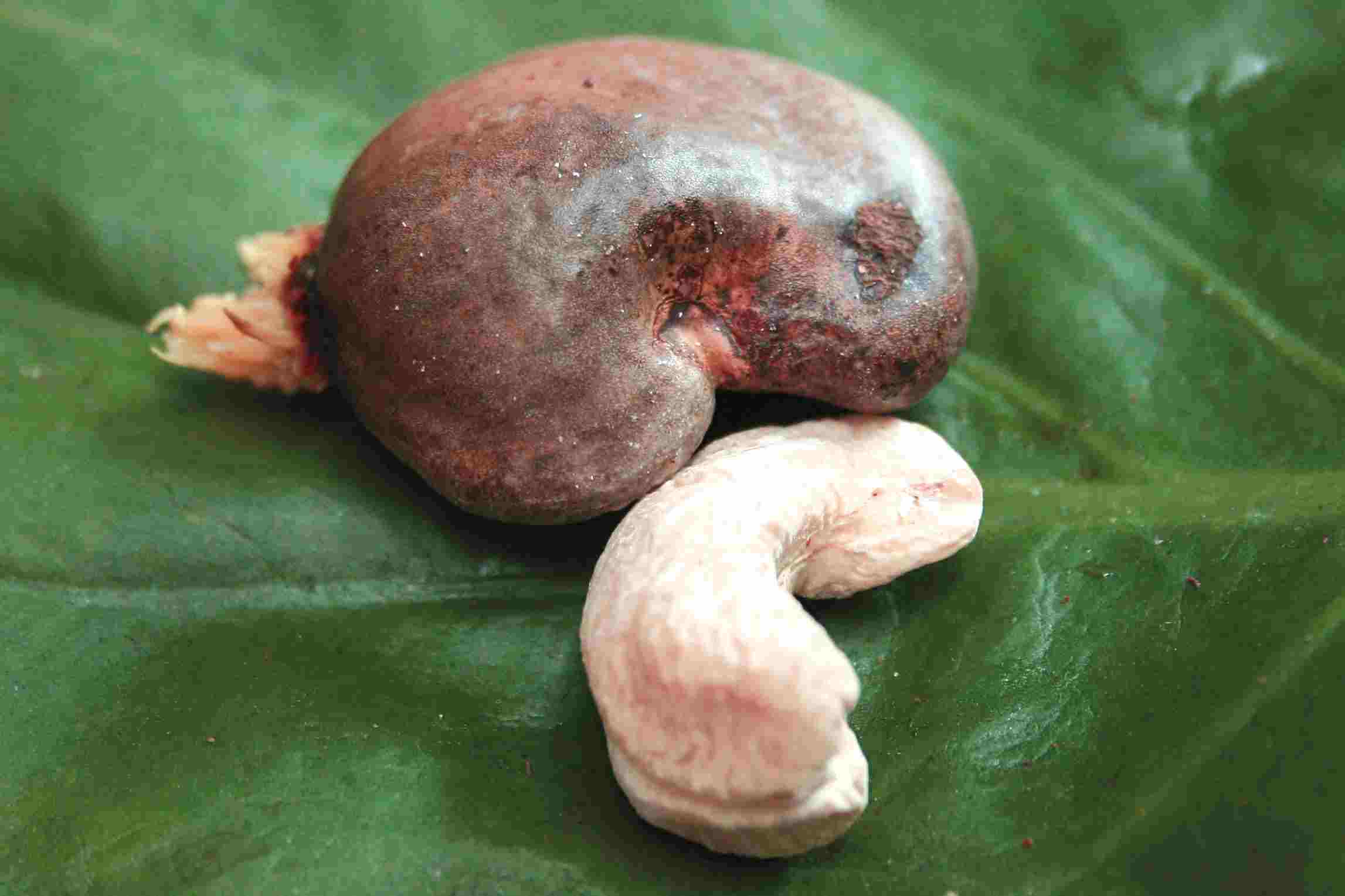
The cashew nut is a popular snack, and its rich flavor means that it is often eaten on its own, lightly salted or sugared. Cashew nuts also factor in Thai cuisine and Chinese cuisine, generally in whole form, and in Indian cuisine. The cashew nut can also be used in cheese alternatives for vegans. The plant of the cashew is native to northeastern Brazil. Its English name derives from the Portuguese name for the fruit of the cashew tree, caju, which in turn derives from the indigenous Tupi name, acajú. It is now widely grown in tropical climates for its cashew nuts.
Cashew nut, scientifically known as Anacardium occidentale, is a tree nut that is widely consumed all around the world. It is native to Brazil but is now grown in many tropical regions. Cashew nut is an important food crop and cash crop in many countries and has a wide range of culinary applications. It is used in cooking as a garnish, ingredient, and snack. Besides being delicious, cashew nuts are full of essential nutrients that have numerous health benefits.
Cashew nuts are high in protein, healthy fats, fiber, and minerals. They are also rich in antioxidants and vitamins, particularly vitamin E and K. Cashews are also a good source of carbohydrates, making them an ideal snack for people who follow a low-carb diet.
One of the most notable health benefits of cashews is their ability to promote heart health. They are rich in monounsaturated and polyunsaturated fats that can help lower the level of bad cholesterol (LDL) and increase the level of good cholesterol (HDL) in the body, thereby reducing the risk of heart disease. Cashew nuts also contain magnesium, which helps regulate blood pressure and improve heart health.
Cashew nuts are also beneficial for the digestive system. They contain soluble fiber, which can help with digestion. Moreover, the healthy fats present in cashews can help reduce inflammation in the digestive tract and prevent digestive disorders, such as Crohn's disease and ulcerative colitis.
Cashews also have a positive impact on brain health. They are rich in magnesium, which helps promote cognitive function and improve memory. They also contain thiamine or vitamin B1, which is crucial for brain health and helps prevent age-related cognitive decline. The copper present in cashews also contributes to overall brain health by aiding in the production of neurotransmitters and improving cognition.
In addition to these health benefits, cashew nuts are also a great source of energy. They contain a good amount of carbohydrates and healthy fats that provide sustained energy throughout the day. Therefore, cashews are an ideal snack for people who lead an active lifestyle and require a quick energy boost to get through the day.
Cashews are also versatile in the kitchen. They can be used in both sweet and savory dishes and provide a creamy texture and a nutty flavor. They can be roasted, toasted, or used raw. Cashew butter is another delicious and healthy alternative to peanut butter that is widely available in health food stores.
However, despite the numerous health benefits of cashew nuts, it is essential to consume them in moderation. Like most nuts, cashew nuts are high in calories and fat. One ounce of cashews contains about 155 calories, which makes them a nutrient-dense but calorie-dense food. Therefore, it is best to limit their intake to a small handful per day.
Cashew nuts are a delicious and nutrient-dense food that has numerous health benefits. They are a rich source of vitamins, minerals, healthy fats, and fiber that can help promote heart health, digestive health, and brain health. Moreover, cashews provide sustained energy and are versatile in the kitchen. However, like most nuts, they should be consumed in moderation to prevent weight gain and other health risks. Overall, cashews are an excellent addition to a healthy and balanced diet.